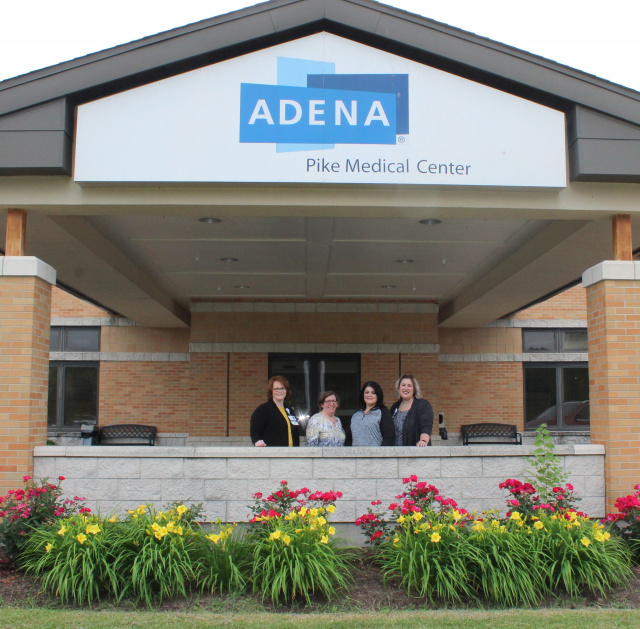WAVERLY (June 10, 2019) – Adena Pike Medical Center (APMC), in partnership with The Recovery Council, is set to begin a medically-assisted inpatient detoxification pilot program. This will be the first program of its kind in the region to help individuals with opioid addiction.
APMC’s inpatient medical-stabilization service will begin later this month, with patients being admitted to the hospital through The Recovery Council, a Waverly-based treatment facility. While at the hospital, patients will have access to medication to ease withdrawal, which often includes intense flu-like symptoms. The average hospital stay is expected to be three to five days, APMC leaders said. Following detox, patients return to The Recovery Council for further treatment.
“Adena and The Recovery Council identified the need for a medical detox program in the community,” said Dave Zanni, APMC Senior Operations Executive Officer. “Currently, patients with opioid use disorder have had to detox in jail, or if being helped by The Recovery Council, have had to travel pretty far away, sometimes across state lines, for medically-assisted detox. With APMC now a resource for The Recovery Council, their clients will be medically monitored appropriately while going through detox.”
In many instances patients have co-morbid diseases such as diabetes or high blood pressure that need to be monitored while they go through the detox process. Through APMC’s inpatient setting, those patients can receive the medical attention they need.
“We want to help people manage their symptoms, so we can set them up for success,” explained Lometa Smith, MSN, RN, APMCdirector of Nursing. “When someone is going through a substance detox that is one of the things that turns them back to their addiction because of the symptoms they experience when they are not using.”
APMC will not perform substance abuse therapy while patients are in the care of the hospital, only manage the medical symptoms of the patients. Once a patient is medically cleared, the hospital will contact The Recovery Council, which will return the patient back to their facility.
The APMC staff has gone through extensive training to prepare for this new service. In addition to clinical education, two patients in recovery visited the hospital to speak with staff, providing intimate details and understanding of what it is like to go through the detox process.
“We understand that we may have some patients that will need more than one detox admission,” Smith said. “Statistically, most clients are not successful their first time through. This population has a stigma around them and I think in the medical field we can become very jaded to that – especially when you are seeing clients multiple times through the facility. We want to make sure our caregivers understand and have compassion for these individuals; and to help them understand that someone does care for them, and we are here to support them.”
The focus of APMC’s program is narrow during this early pilot phase. The hospital is exclusively working with The Recovery Council. Long-term plans for the program include opening the service up to other referring treatment centers, self-referred patients and expanding the program to Adena’s other critical access hospital in Greenfield. Possibilities for extending the inpatient detox to patients battling substances other than opioids is being considered as well.
The program will begin with one patient its first week, with the goal of expanding up to five over time.
“We’re a little nervous and a little excited,” Smith added. “We want to make sure we are setting the patients up for success, as well as our caregivers.”
For more about Adena Health System, visit us at adena.org, or follow us on Facebook, Instagram, or Twitter @adenamedical.










